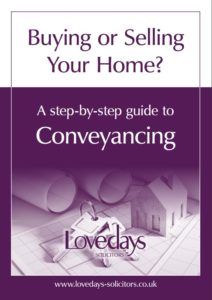- Home
- Personal Services
- Advice for Employees
- Conveyancing
- Dispute Resolution
- Boundary Disputes
- Dealing with Rent Arrears
- Japanese Knotweed Claims
- Landlord and Tenant Disputes
- Landlord Harassment & Illegal Eviction
- Negligence Claims Against Builders & Developers
- New Build Property Disputes
- Noisy Neighbour Disputes
- Personal Debt Collection
- Property Misrepresentations Claims
- Rights of Way Disputes
- Section 21 No Fault Evictions
- TOLOTA Claims
- Tree & Hedge Neighbour Disputes
- Divorce and Separation
- Family Law
- Lasting Power of Attorney
- Licensing
- Probate Law
- Trusts
- Wills
- Business Services
- Reviews
- Make An Enquiry
- Cost and Service Information
- About Us
- Contact Us
Contesting A Will
Do you believe that the Will is not valid or want to make a financial claim from an estate of a loved one? You may want to consider contesting the Will with help from our Wills and Probate solicitors in Matlock.
We regularly see clients who come in to see us who are concerned regarding the validity of a Will. They could be concerned that they were unsure of what they were doing when they wrote the Will, or someone has influenced them. In some cases, they believe that the Will is a forgery.
Understanding Wills
A Will is a legal document that outlines your preferences concerning the allocation of your assets and can influence the guardianship of any minor children, in the event of your passing. If you pass away without a Will, these preferences might not be fulfilled. Moreover, your beneficiaries could face increased time, costs, and emotional strain to resolve your matters after your departure.
Creating a Will is essential because: without one, there are specific regulations to determine the distribution of your assets, property, or belongings. This distribution might not align with how you wished your estate to distributed.
{quote}
Grounds for Contesting a Will
Generally speaking, the grounds for contesting a Will may be on the following basis:
Lack of Testamentary Capacity
If a Will is made, the person who signed it must be of sound mind at the time of the signature. If they did not have capacity at the time of the signature, you may be able to argue that the Will is invalid. This is called a lack of testamentary capacity.
Lack of Valid Execution
There are rules relating to how a Will must be signed. If the Will is not signed correctly or failed to meet the requirements of a valid Will, then it may be challenged. This is called a lack of valid execution.
Lack of Knowledge or Approval
Someone who signed a Will must have knowledge of and approval of the contents of the Will. To use this ground, you must prove that the testator was not aware of the contents of the Will or that there were suspicious circumstances. This is called a lack of knowledge or approval.
Undue Influence
You may be able to prove that the testator (the person signing the Will) was unduly influenced, coerced or under duress at the time they signed the Will. This is called undue influence.
Fraud or Forgery
It may be that the Will has been forged. Alternatively, someone has made a fraudulent allegation and as a direct result, the testator has changed their Will. This is called fraud or forgery.
Rectification or Constructive Claims
Sometimes the Will fails to carry out what the testator intended either because of a clerical error such as a typo or an error on behalf of the person drafting the Will. If this is the case, you may be able to use rectification or constructive claims.
Who Can Contest a Will?
Anyone who has a beneficial interest, or a potential beneficial interest, in the estate can contest a Will if they feel as though they have a valid legal claim. In many cases people who have a claim against a Will are:
- Family members.
- Someone who was financially dependent on the deceased.
- A beneficiary under the Will or an earlier Will.
- People the deceased owed money to.
- People who were promised something by the deceased.
If a Will is contested and declared invalid, any previous Will that was made by the testator will be admitted to the probate in its place. However, if there was no previous Will then their estate will be treated as if there was no Will at all. This means that the rules of intestacy will apply.
{quote}
The Process of Contesting a Will
If you believe that a Will is not valid or that you've been unfairly treated under its terms, you may be able to contest it. In the UK, contesting a Will is a complex legal process and it is advisable to seek legal advice before proceeding.
Early Considerations
Before making a claim it is important to consider a number of different things: does your claim fall under some of the common grounds for contesting a Will? Will your claim benefit from mediation? Have you considered the legal costs of contesting the Will?
Contesting a Will After Probate
It is possible to contest a Will after a grant of probate has been issued. Although, the process becomes much more complex and potentially more expensive than challenging a Will before probate has been completed.
The grounds for contesting the Will remain the same even after probate has concluded. However, it is often the case when contesting a Will after probate that you will have to challenge the way the estate has been administered by the executors.
It is crucial to seek legal advice from a solicitor experienced in contesting Wills and contentious probate matters before making a claim.
Contesting a Will After Estate Distribution
It is also possible to contest a Will after the estate has been distributed among the beneficiaries. One of the main challenges of doing this is recovering the distributed assets if the claim is successful as the beneficiaries may be unable or unwilling to return the assets.
The grounds for a claim remain the same following the distribution of assets, however there may be time limits on when you can contest your claim. Claims for financial provision under the Inheritance (Provision for Family and Dependants) Act 1975 usually need to be made within six months of the grant of probate. While courts can allow claims outside of this period in exceptional circumstances, it becomes more difficult after distribution.
Due to the complexities of having a successful claim following the distribution of assets it is often advisable that you look at alternate routes. One potential avenue could be to sue the executor for negligence or misconduct if they distributed assets knowing there was a dispute or potential claim against the Will. However, it is best to speak with an experienced solicitor who can advise on the best course of action for your case.
Financial Claims Against an Estate
In some cases, you can make financial claims against an estate if you believe that the deceased's Will, or the rules of intestacy (if there's no Will), don’t make reasonable financial provision for you. The grounds for making a financial claim against an estate hinge on what the court considers “reasonable financial provision” which can vary depending on the relation between the claimant and the deceased.
Speaking with a solicitor can help you determine whether you have a strong case in order to make a financial claim or not.
{quote}
The Role of Solicitors in Contesting a Will
Solicitors play a crucial role in the process of contesting a Will, guiding you though the legal process while also ensuring that the correct procedures are followed. Responsibilities of a solicitor in this process include:
- Making an initial assessment of your claim to determine merit.
- Gathering evidence to help support your claim.
- Undertake legal procedures such as filing the claim and preparing necessary court documents.
- Negotiate with the other parties involved in the dispute as well as participate in any mediation sessions.
- Represent you and your interests in court if an amicable solution cannot be reached.
- Provide you with guidance following the outcome of your claim.
- Ensure compliance with relevant laws, regulations, and time limits while also safeguarding your rights and interests.
The Potential Costs of Contesting a Will
It is difficult to provide the exact cost of contesting a Will due to the many variables that can affect the cost of each case. Despite this, some of the factors that can influence the cost of contesting a Will include things such as the complexity of the case, the duration of the dispute, the method of resolution, and your solicitors’ fees among other factors.
{quote}
Make An Enquiry
If you believe that someone’s Will is invalid, we can assist by having a look to see if you have a valid ground for contesting a Will. You may also be able to make a financial claim against someone’s estate if you qualify.
If you have a question about contesting a Will please contact us on 01629 56660 or make a Free Online Enquiry. To request an appointment please click here.

Free Guide
If you don’t know your leasehold from your freehold, then get our Free Conveyancing Guide. It contains details about the steps you will need to take with any property transactions. The Guide giving you detailed guidance on what your lawyer will be doing for you and what to look out for.


Lovedays Solicitors, Brooke-Taylors Solicitors, Potter and Co Solicitors and Andrew Macbeth Cash and Co Solicitors are the trading names of Derbyshire Legal Services Limited which is a company registered in England and Wales under company number 08838592. Registered office Sherwood House, 1 Snitterton Road, Matlock, Derbyshire, DE4 3LZ.
Authorised and Regulated by the Solicitors Regulation Authority under SRA ID number 637916.
-
01629 56660
-
This email address is being protected from spambots. You need JavaScript enabled to view it. -
Sherwood House
1 Snitterton Road
Matlock
Derbyshire
DE4 3LZ
© Copyright 2019 Derbyshire Legal Services Limited | Website by WebWorks